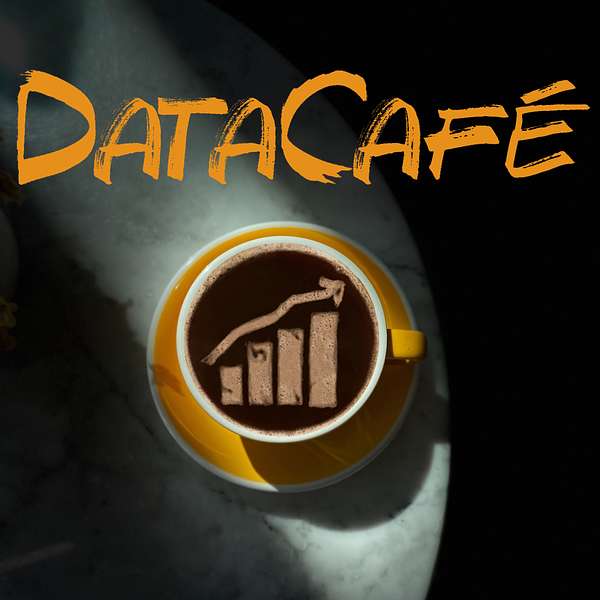
DataCafé
DataCafé
Scaling the Internet
Use Left/Right to seek, Home/End to jump to start or end. Hold shift to jump forward or backward.
Do you have multiple devices connected to your internet fighting for your bandwidth? Are you asking your children (or even neighbours!) to get off the network so you can finish an important call? Recent lockdowns caused huge network contention as everyone moved to online meetings and virtual classrooms. This is an optimisation challenge that requires advanced modelling and simulation to tackle. How can a network provider know how much bandwidth to provision to a town or a city to cope with peak demands? That's where agent-based simulations come in - to allow network designers to anticipate and then plan for high-demand events, applications and trends.
In this episode of the DataCafé we hear from Dr. Lucy Gullon, AI and Optimisation Research Specialist at Applied Research, BT. She tells us about the efforts underway to assess the need for bandwidth across different households and locations, and the work they lead to model, simulate, and optimise the provision of that bandwidth across the network of the UK. We hear how planning for peak use, where, say, the nation is streaming a football match is an important consideration. At the same time, reacting to times of low throughput can help to switch off unused circuits and equipment and save a lot of energy.
Interview Guest: Dr. Lucy Gullon, AI and Optimisation Research Specialist from Applied Research, BT.
Further reading:
- BT Research and Development (https://www.bt.com/about/bt/research-and-development)
- Anylogic agent-based simulator (https://www.anylogic.com/use-of-simulation/agent-based-modeling/)
- Article: Agent-based modelling (via Wikipedia)
- Article:Prisoner's Dilemma (via Wikipedia)
- Article: Crowd Simulation (via Wikipedia)
- Book: Science and the City (via Bloomsbury)
- Research group: Traffic Modelling (via mit.edu)
Some links above may require payment or login. We are not endorsing them or receiving any payment for mentioning them. They are provided as is. Often free versions of papers are available and we would encourage you to investigate.
Recording date: 5 May 2022
Interview date: 27 Apr 2022
Thanks for joining us in the DataCafé. You can follow us on twitter @DataCafePodcast and feel free to contact us about anything you've heard here or think would be an interesting topic in the future.